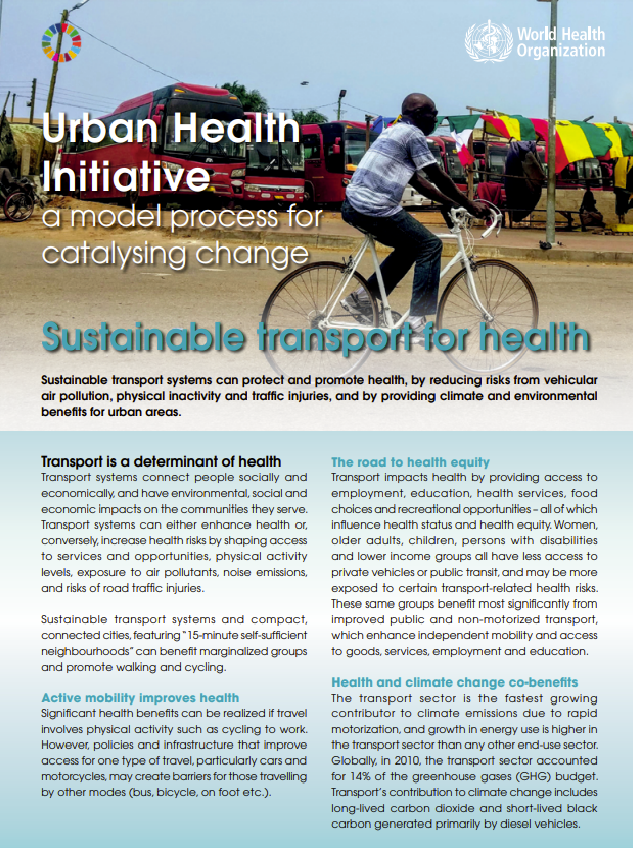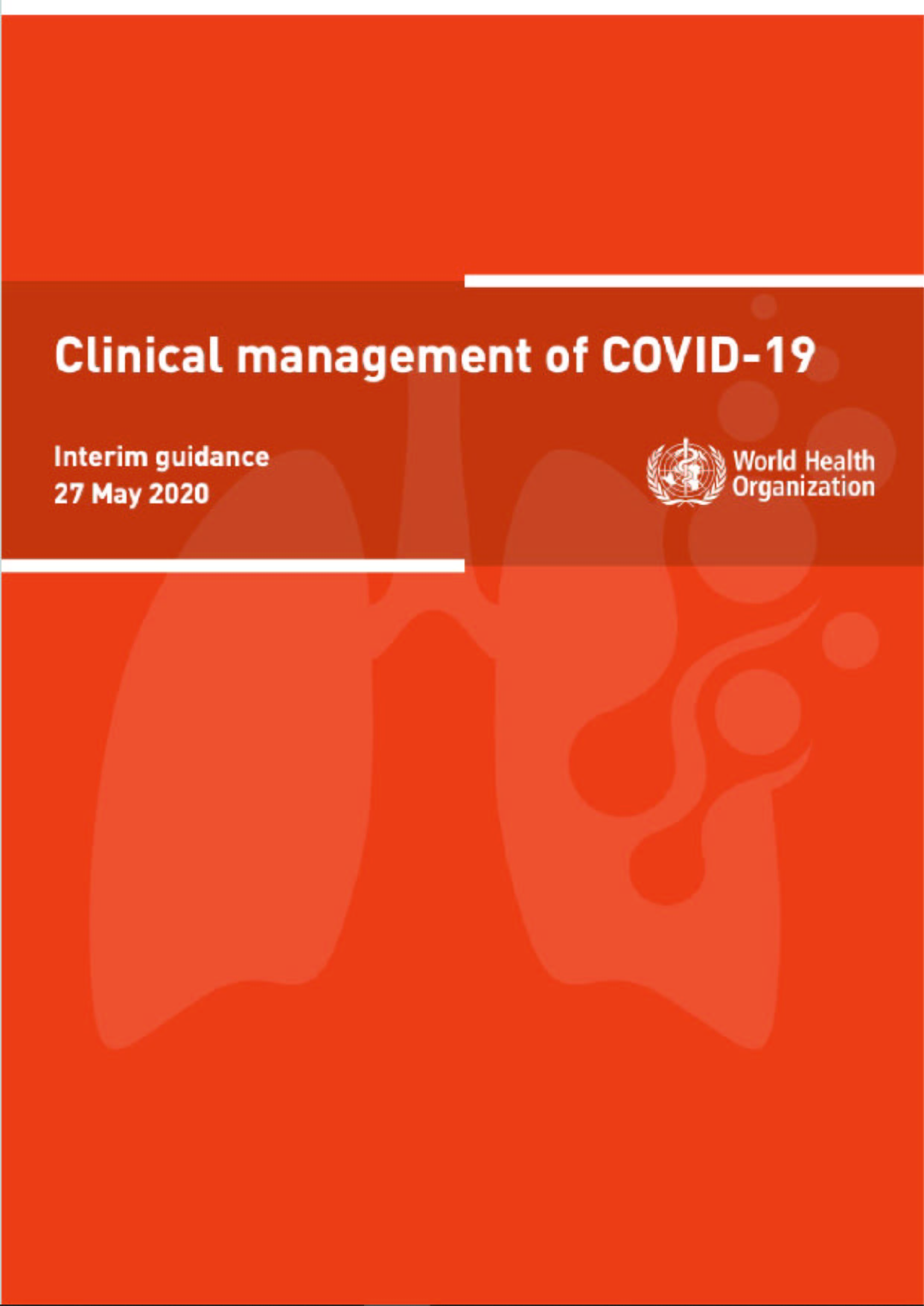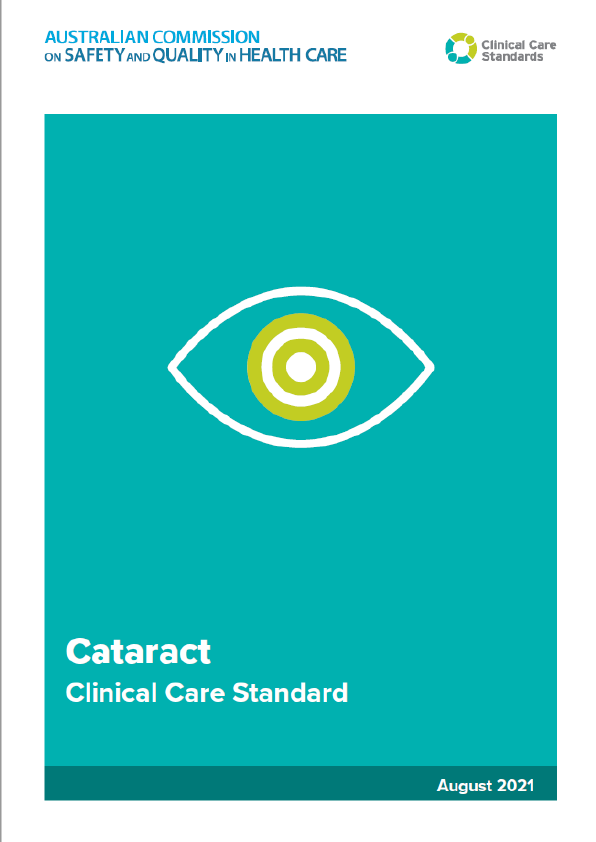Sustainable transport for health
Sustainable transport systems can protect and promote health, by reducing risks from vehicular air pollution, physical inactivity and traffic injuries, and by providing climate and environmental benefits for urban areas.
Transport is a determinant of health
Transport systems connect people socially and economically, and have environmental, social and economic impacts on the communities they serve. Transport systems can either enhance health or, conversely, increase health risks by shaping access to services and opportunities, physical activity levels, exposure to air pollutants, noise emissions, and risks of road traffic injuries.
Sustainable transport systems and compact, connected cities, featuring “15-minute self-sufficient neighbourhoods” can benefit marginalized groups and promote walking and cycling.
Active mobility improves health
Significant health benefits can be realized if travel involves physical activity such as cycling to work. However, policies and infrastructure that improve access for one type of travel, particularly cars and motorcycles, may create barriers for those travelling by other modes (bus, bicycle, on foot etc.).
The road to health equity
Transport impacts health by providing access to employment, education, health services, food choices and recreational opportunities – all of which influence health status and health equity. Women, older adults, children, persons with disabilities and lower income groups all have less access to private vehicles or public transit, and may be more exposed to certain transport-related health risks. These same groups benefit most significantly from improved public and non-motorized transport, which enhance independent mobility and access to goods, services, employment and education.
Health and climate change co-benefits
The transport sector is the fastest growing contributor to climate emissions due to rapid motorization, and growth in energy use is higher in the transport sector than any other end-use sector. Globally, in 2010, the transport sector accounted for 14% of the greenhouse gases (GHG) budget. Transport’s contribution to climate change includes long-lived carbon dioxide and short-lived black carbon generated primarily by diesel vehicles.
SUSTAINABLE TRANSPORT FOR HEALTH IN ACCRA, GHANA
The Urban Health Initiative (UHI) process in Accra assessed the health impacts of the transport sector, and potential health and economic co-benefits of transport strategies by: coordinating existing information; mapping existing transport policies; developing alternative policy scenarios; modelling the air pollution and health impacts of those scenarios; and communicating those impacts. Through this process, decision-makers can assess the potential health gains from different policy scenarios, inform action plans, and develop capacities.











